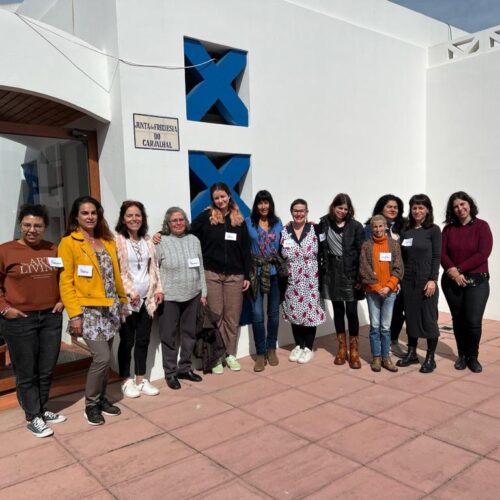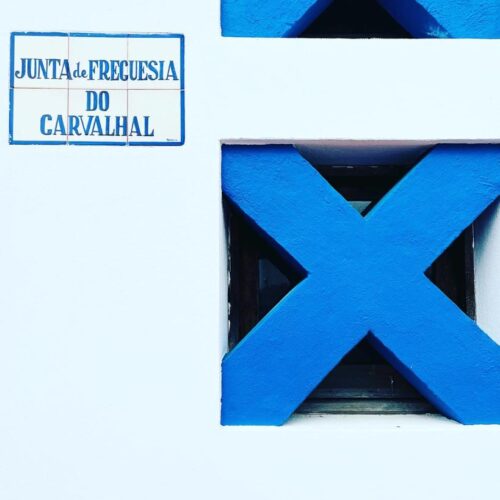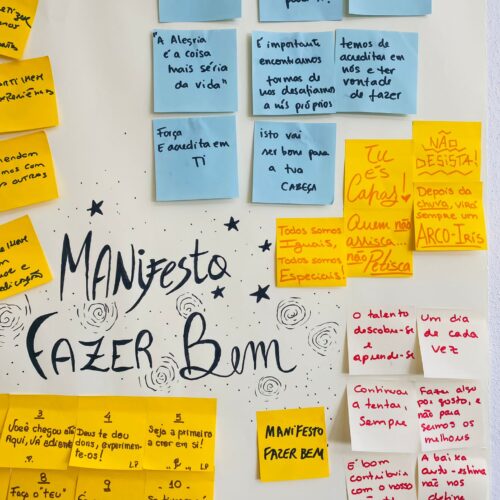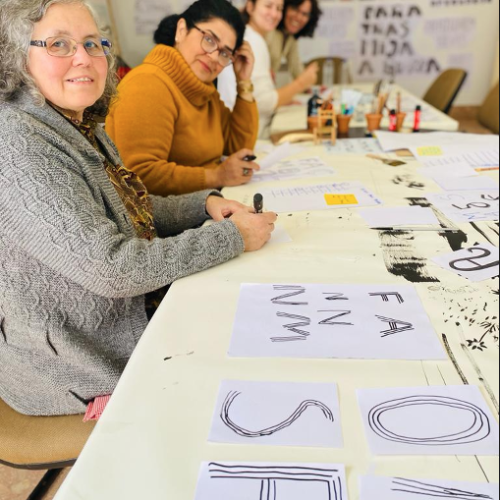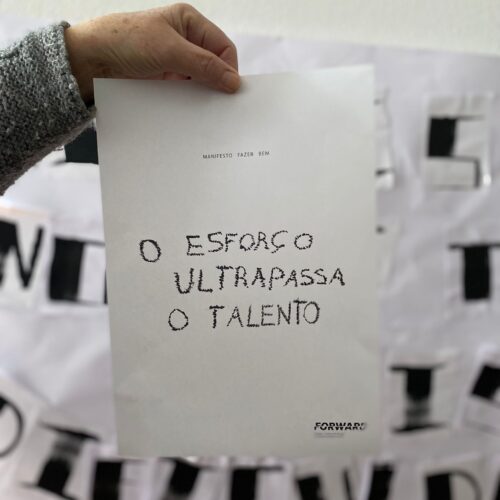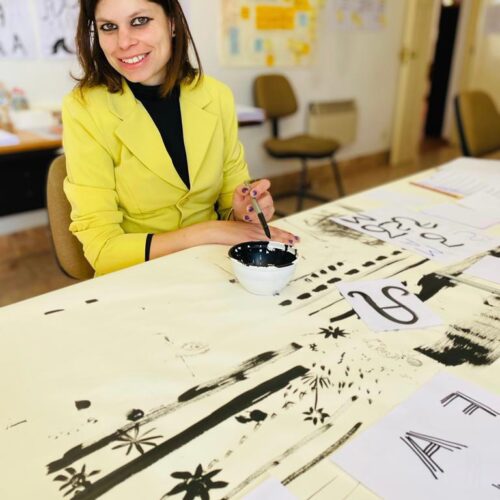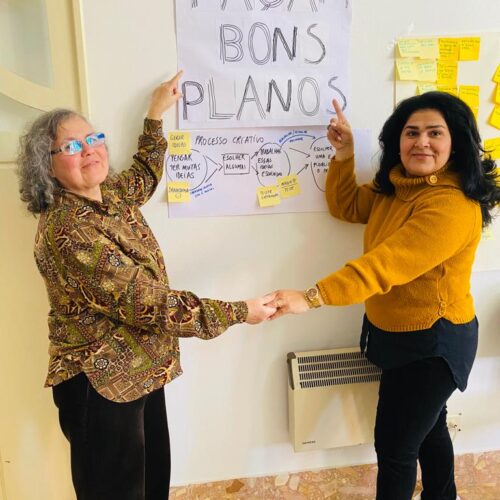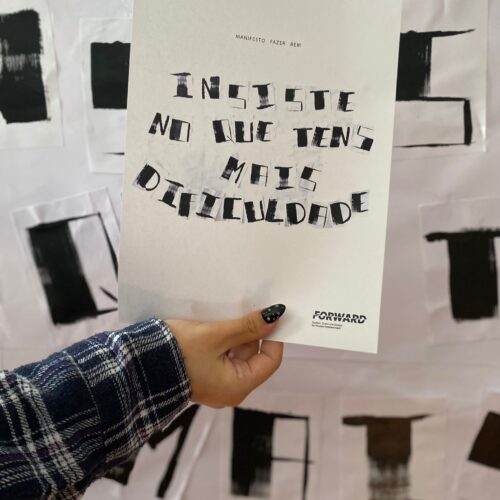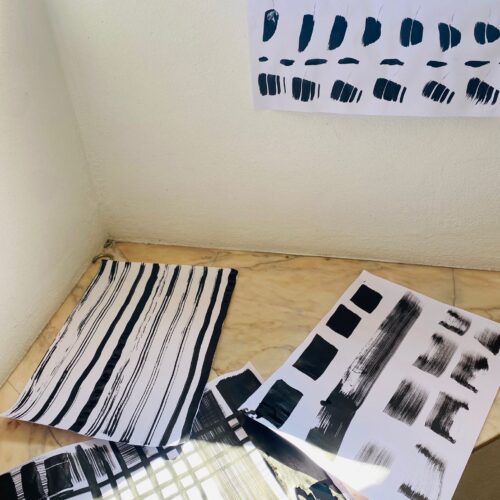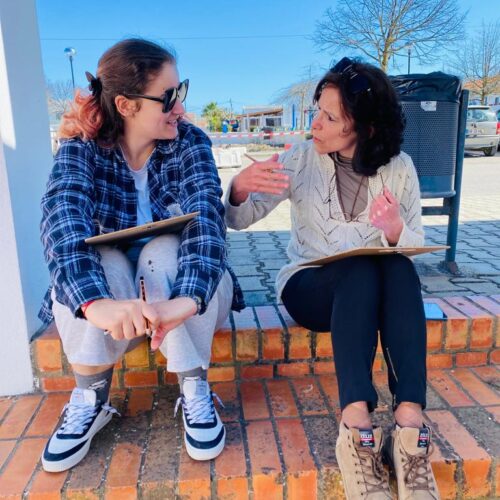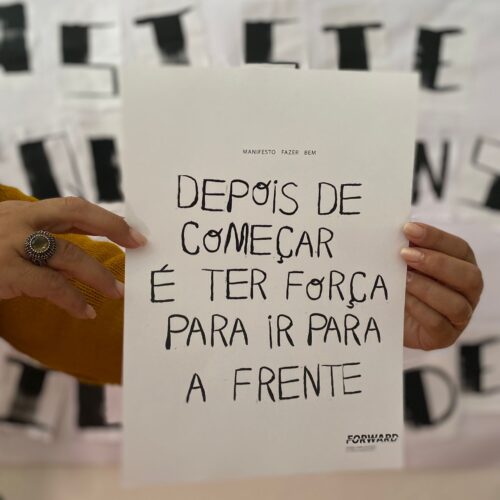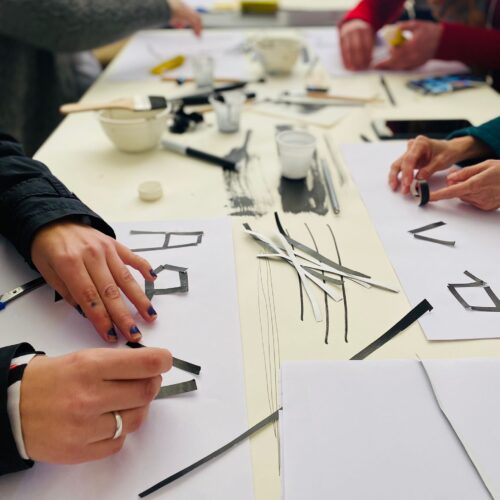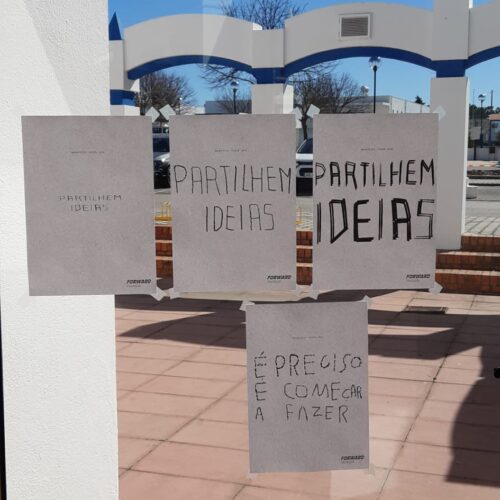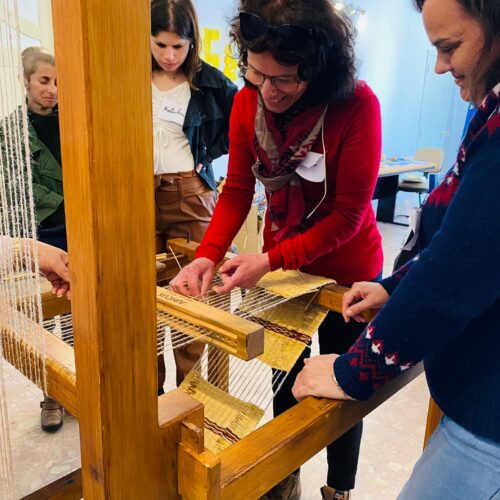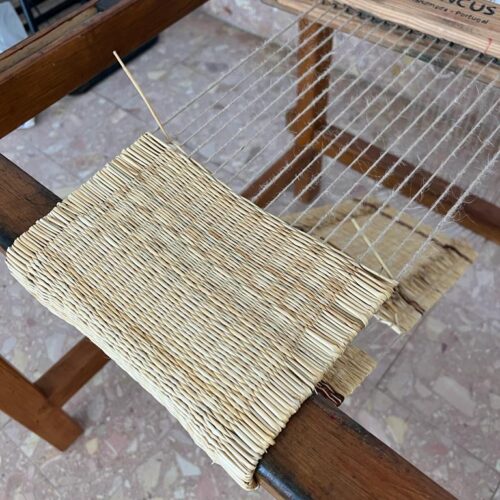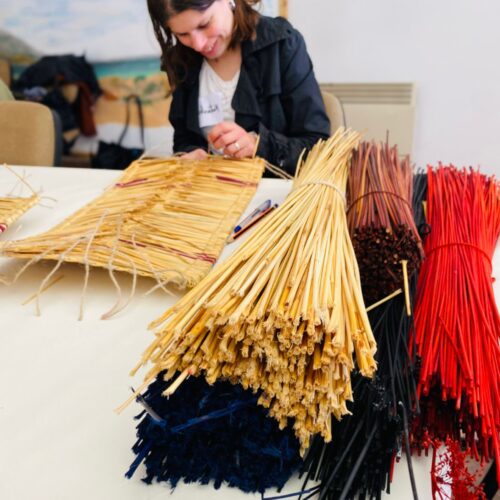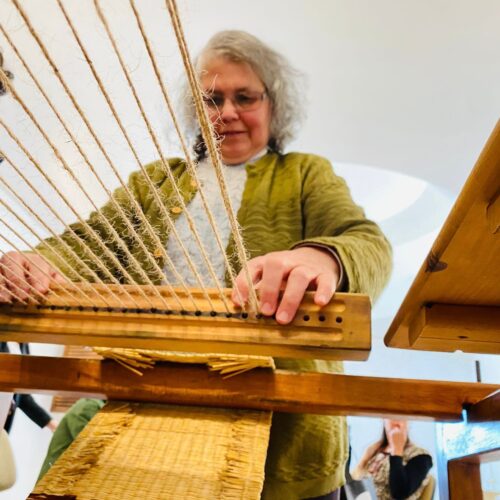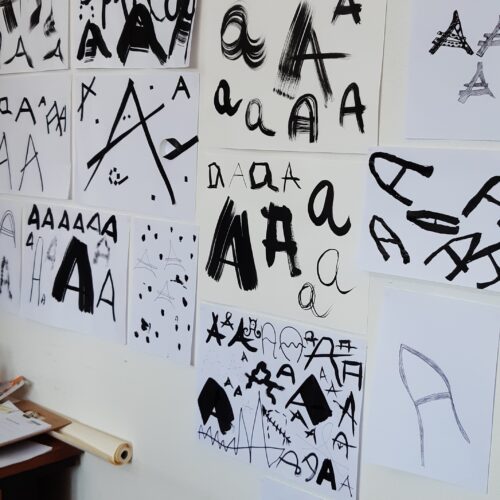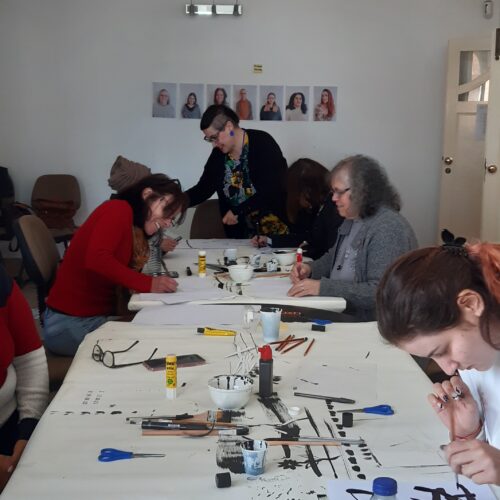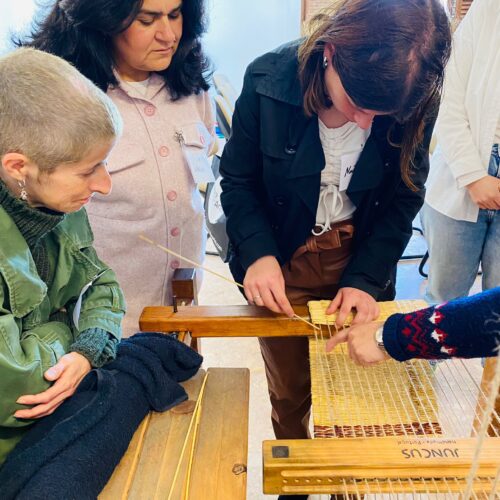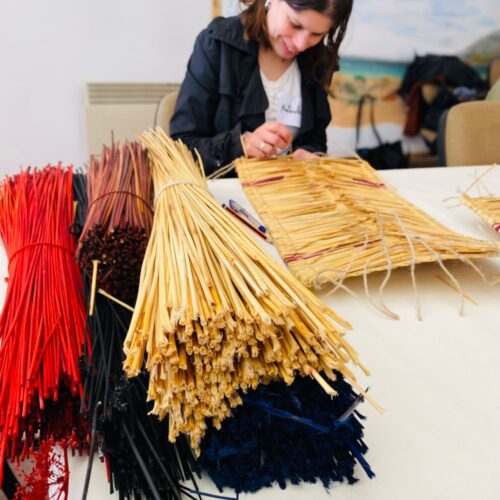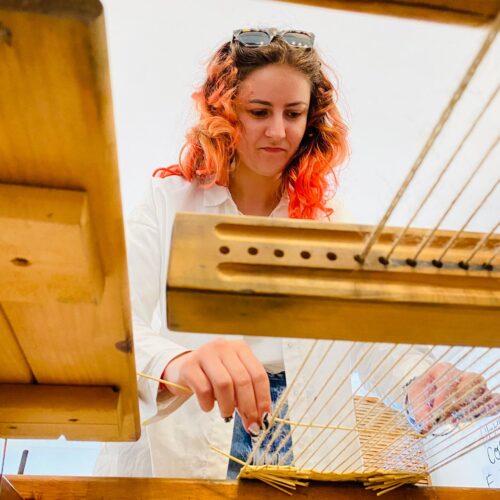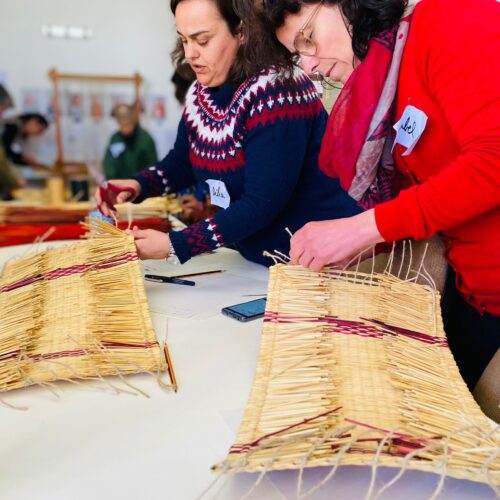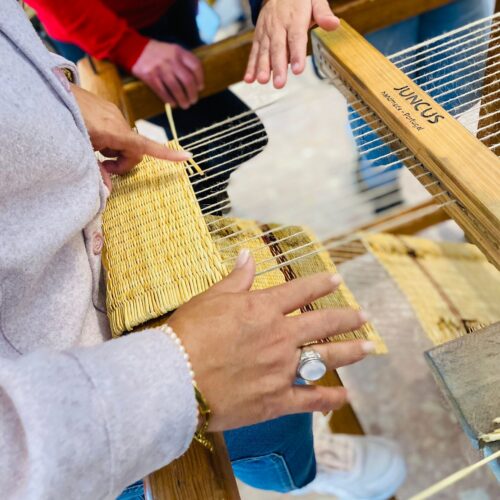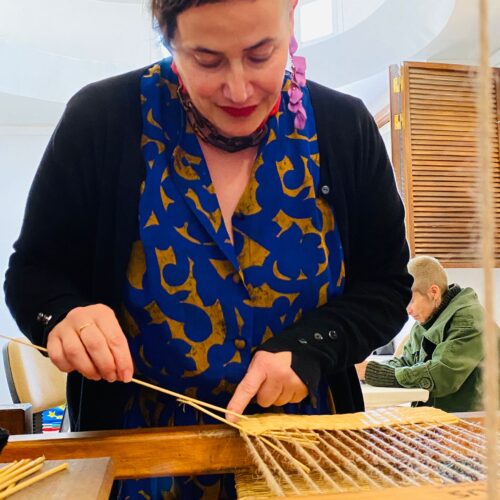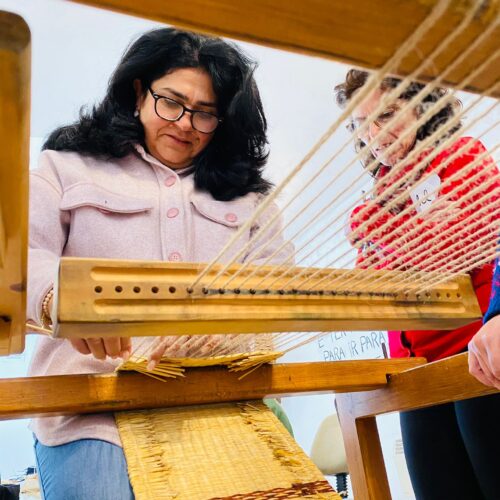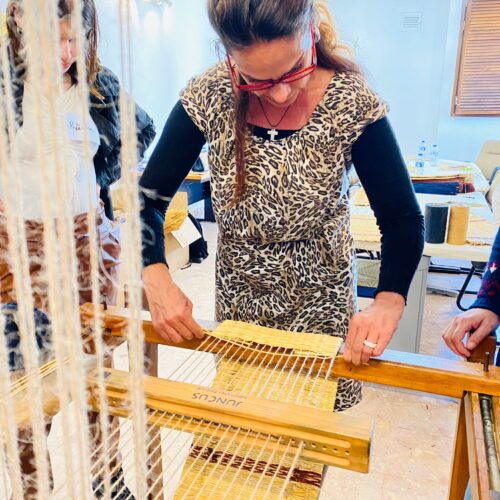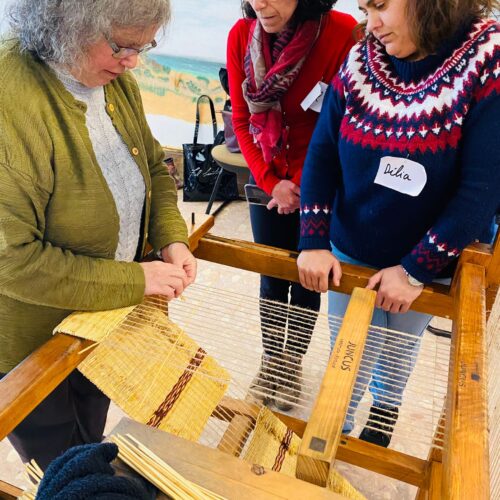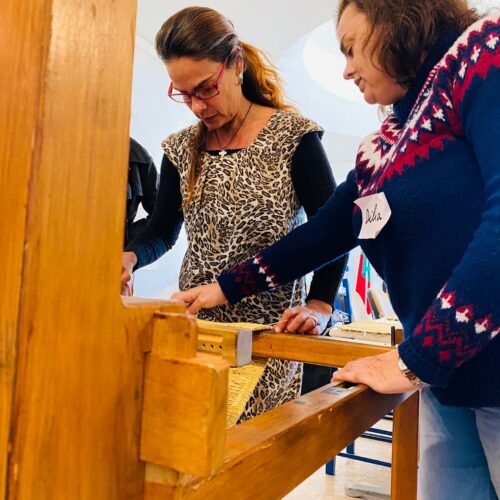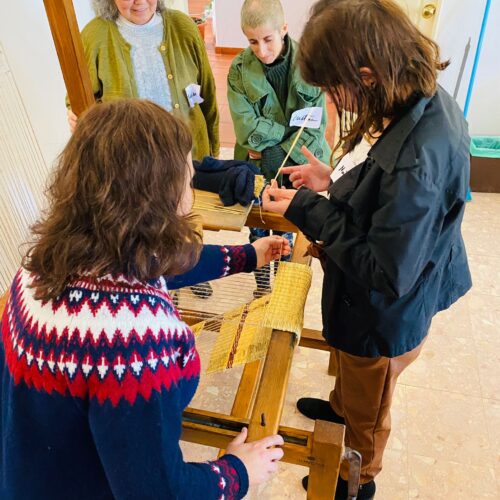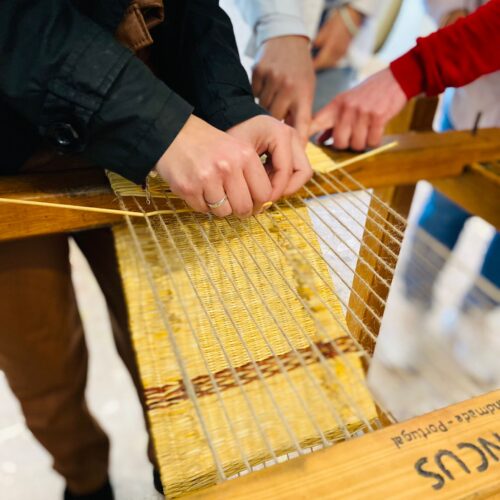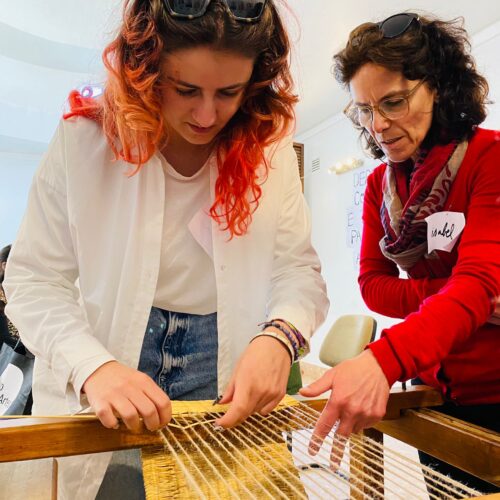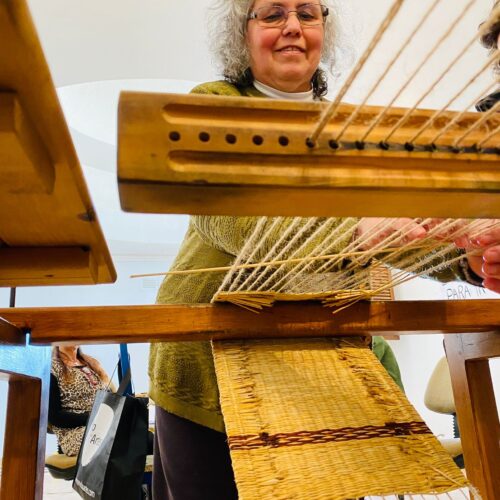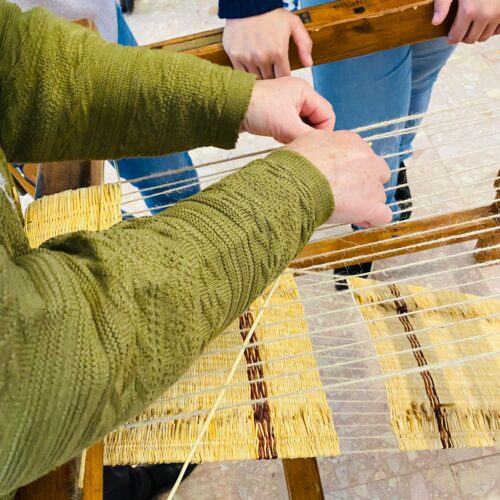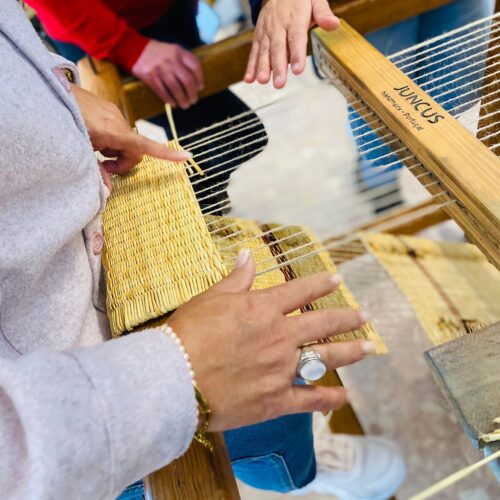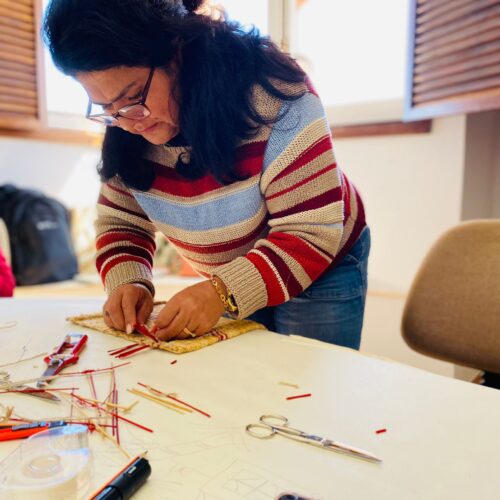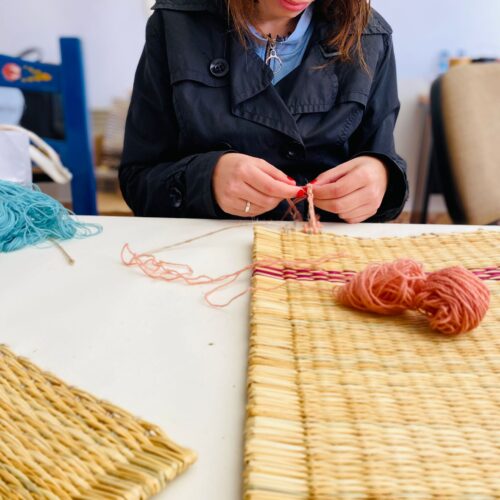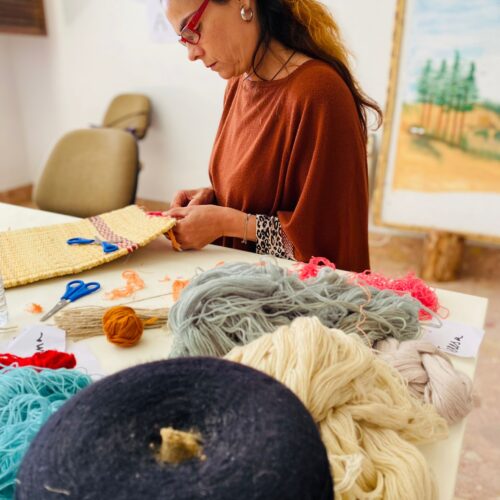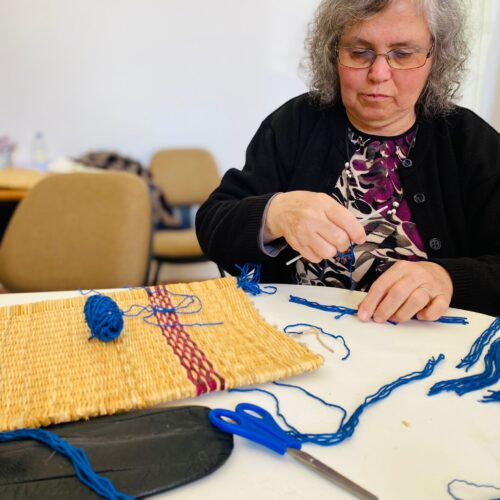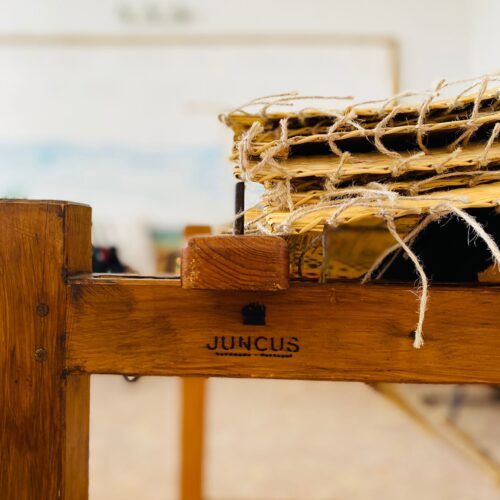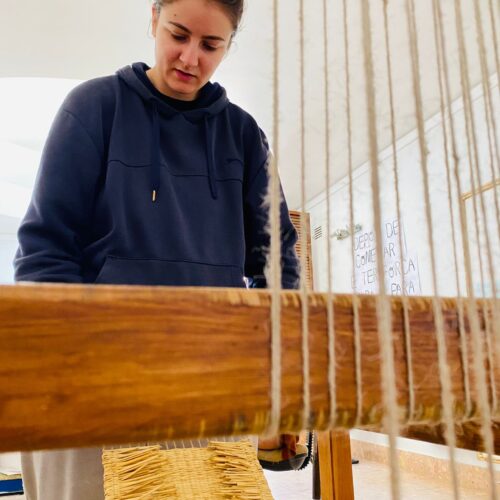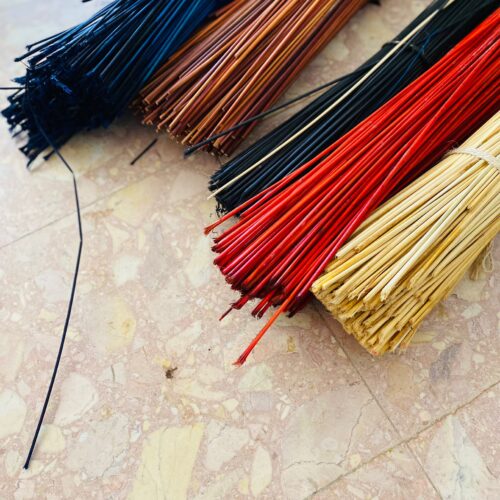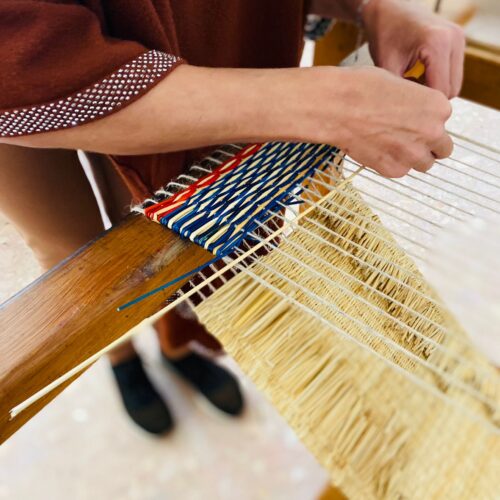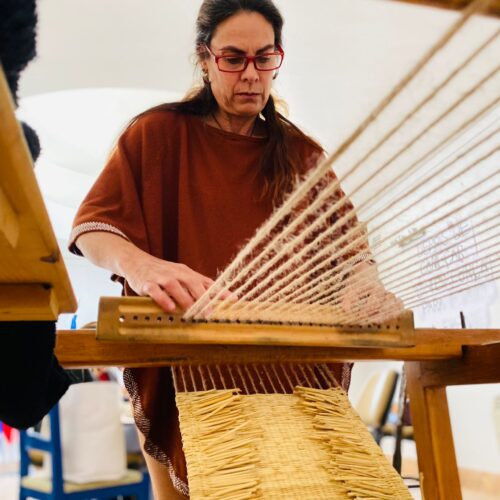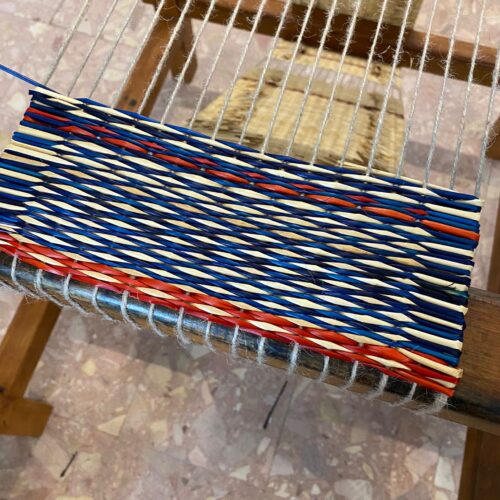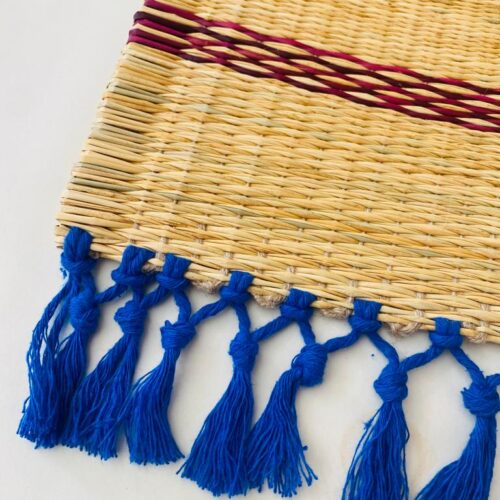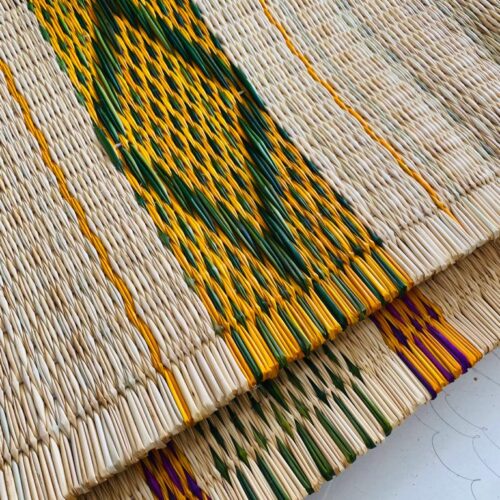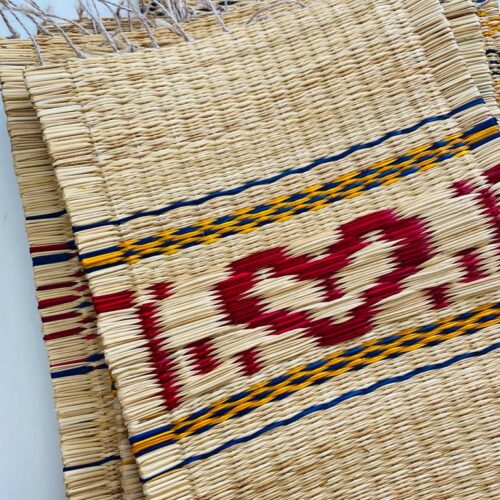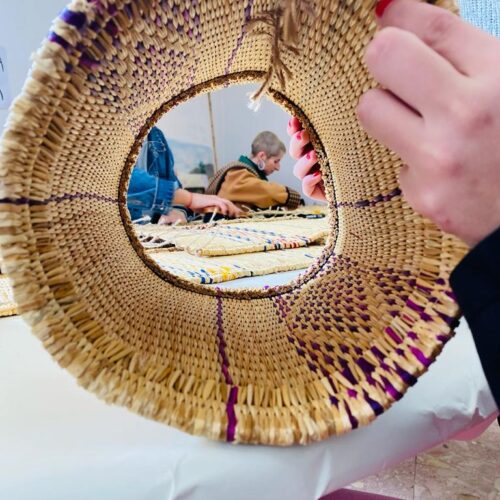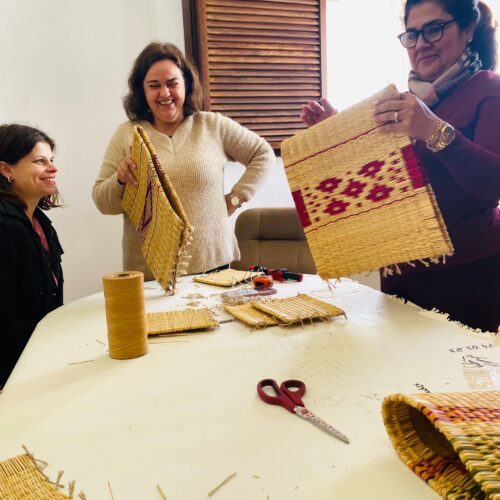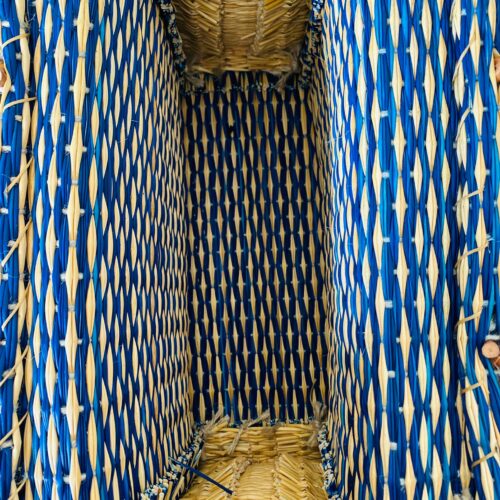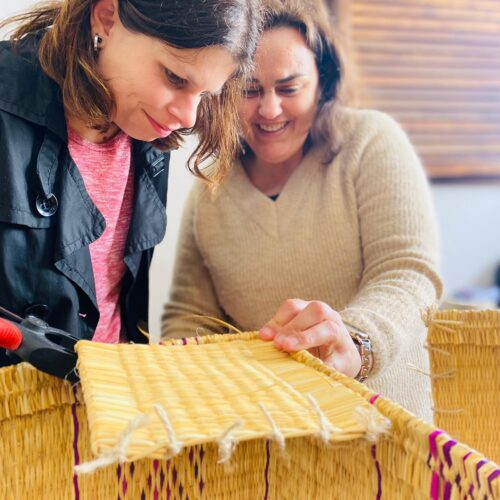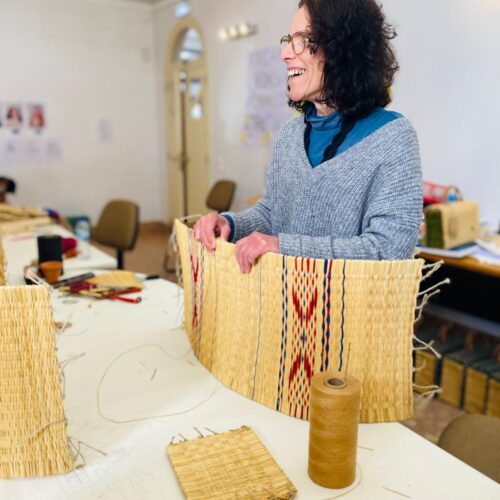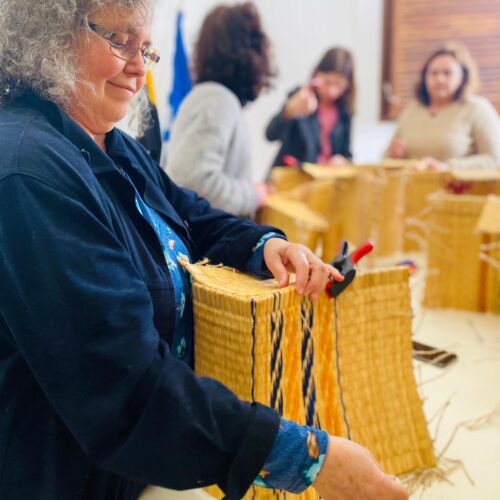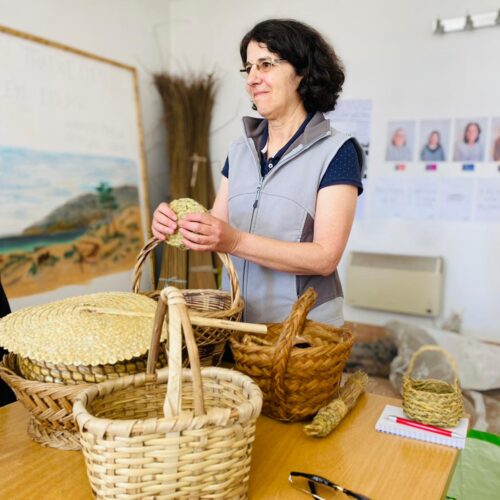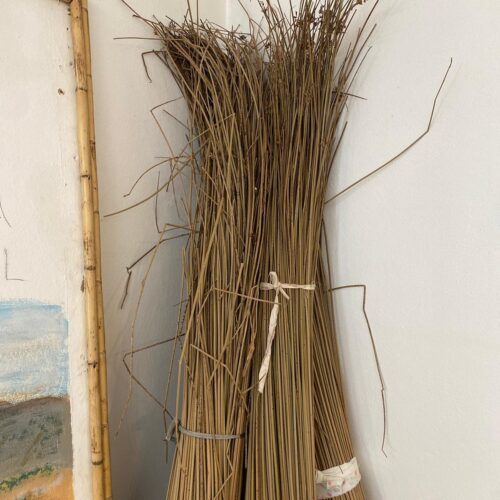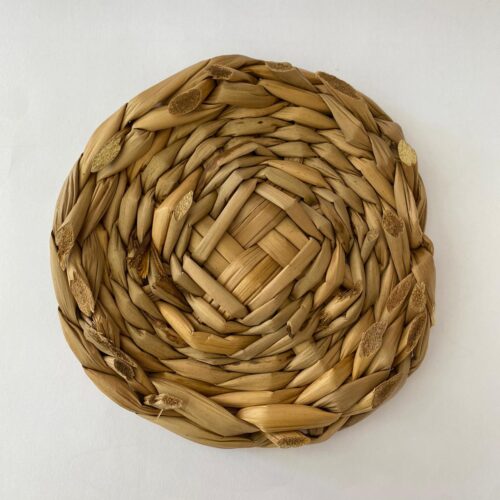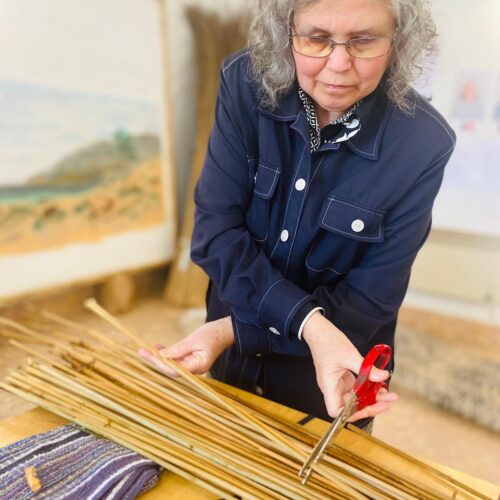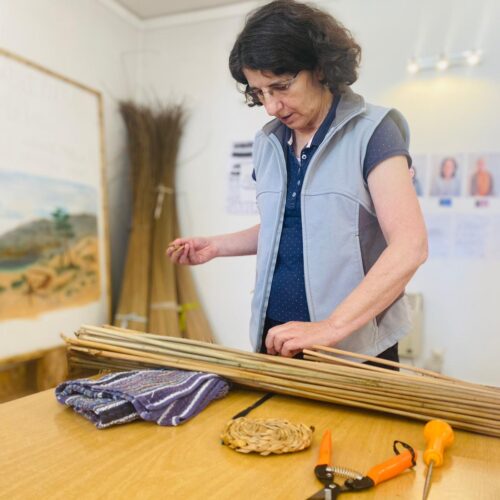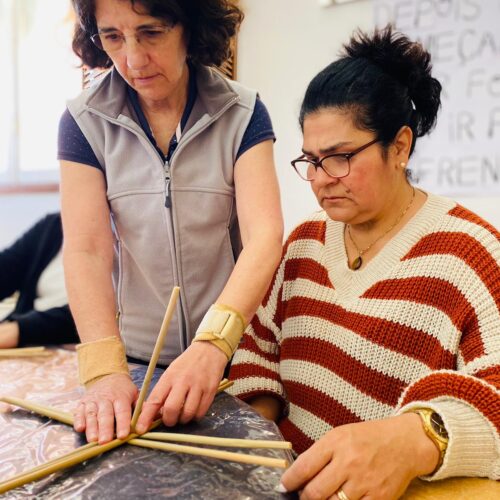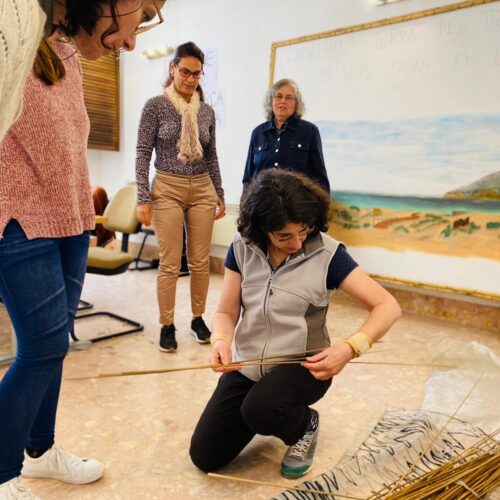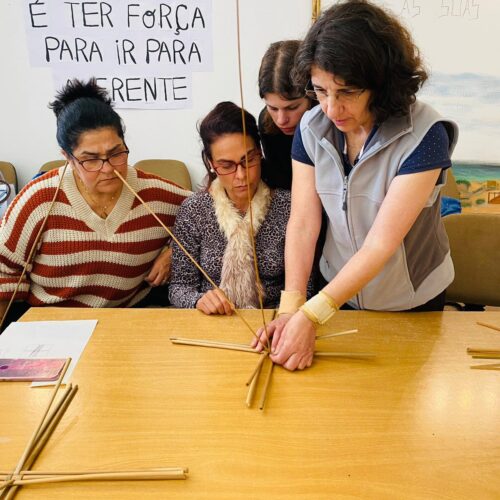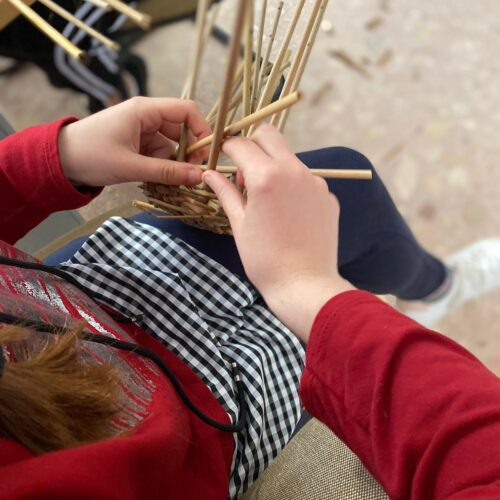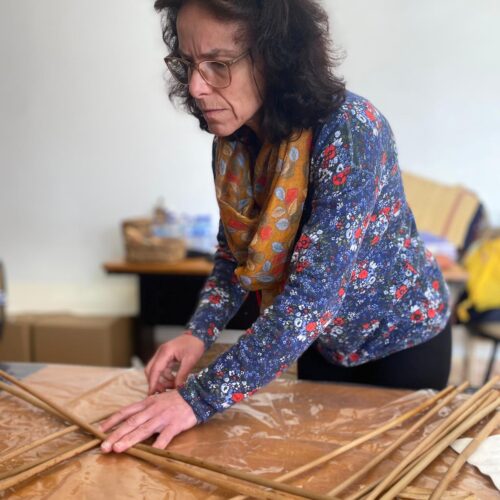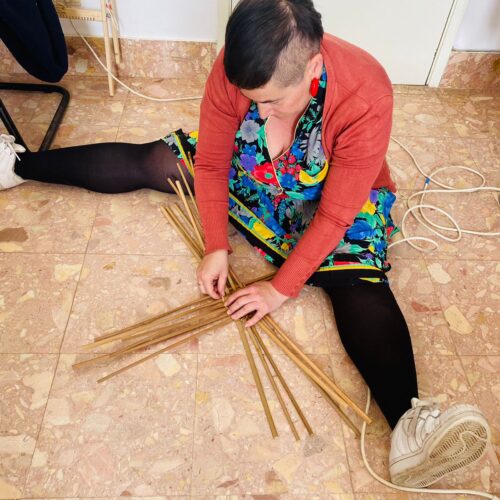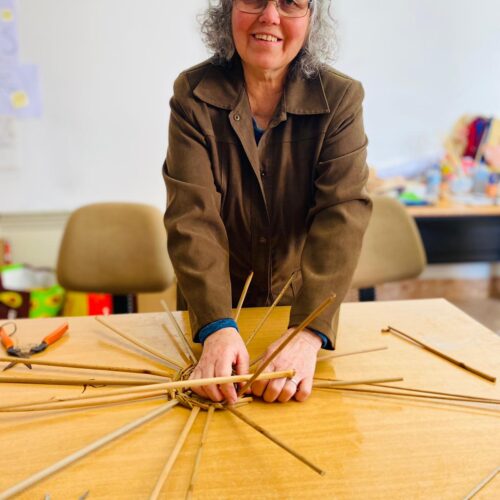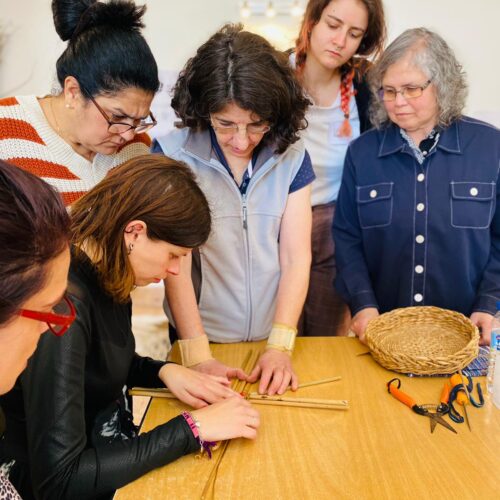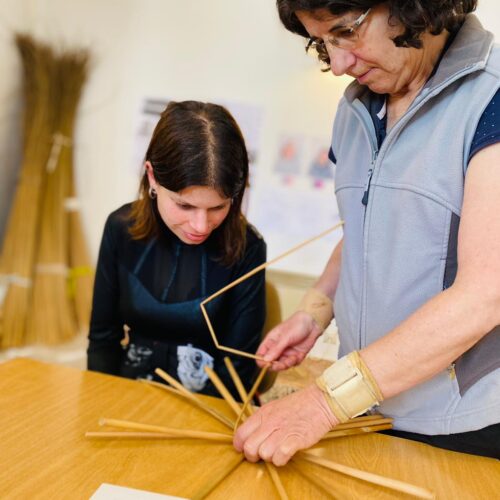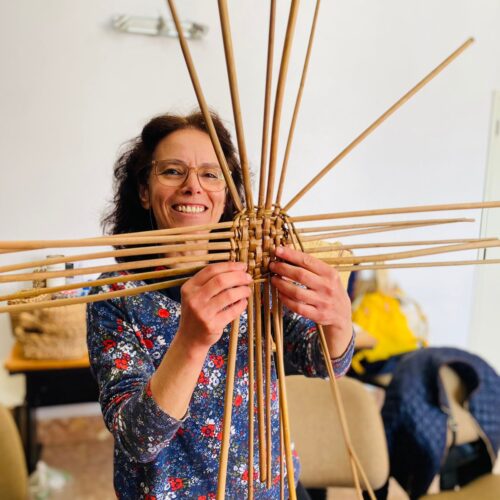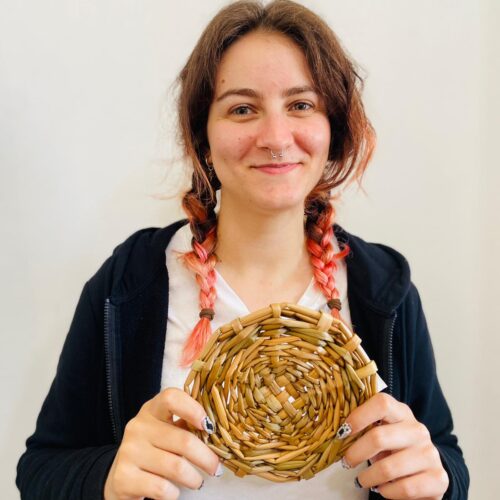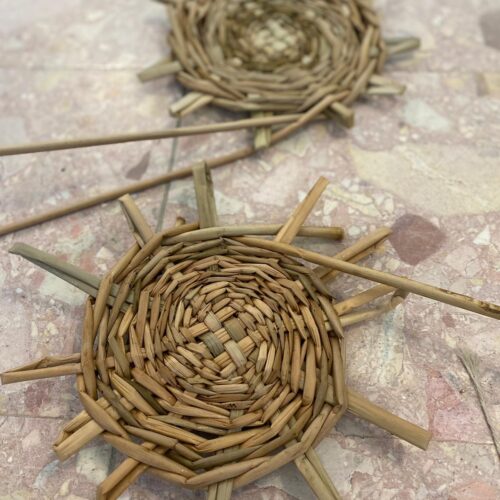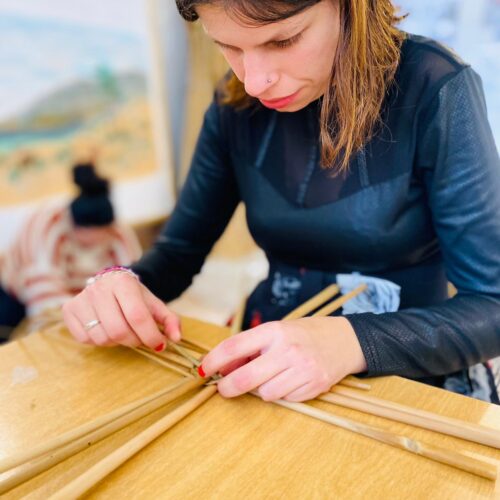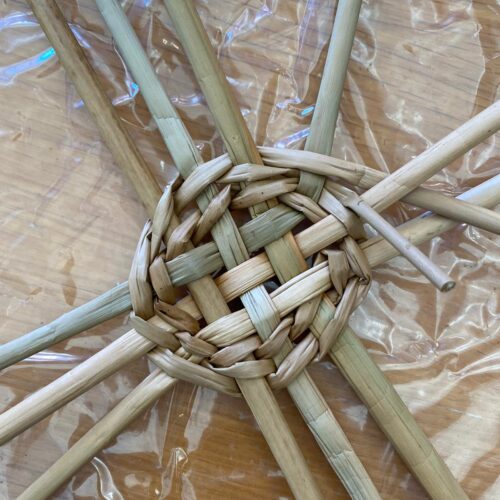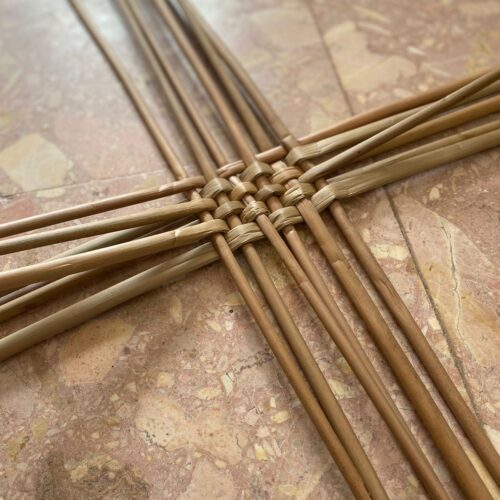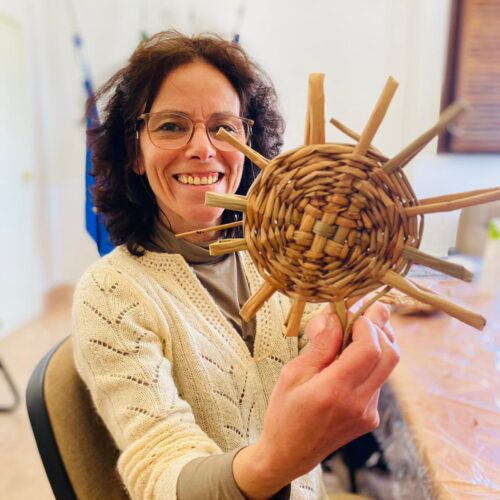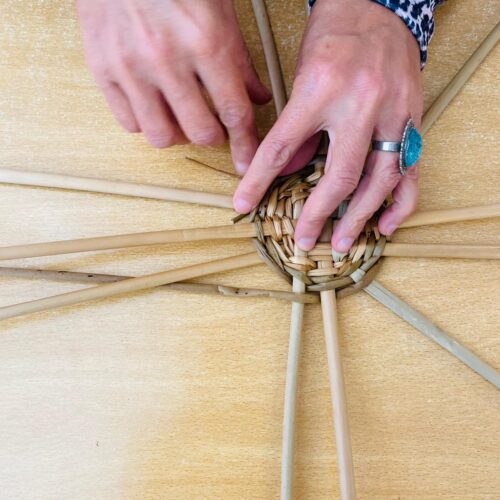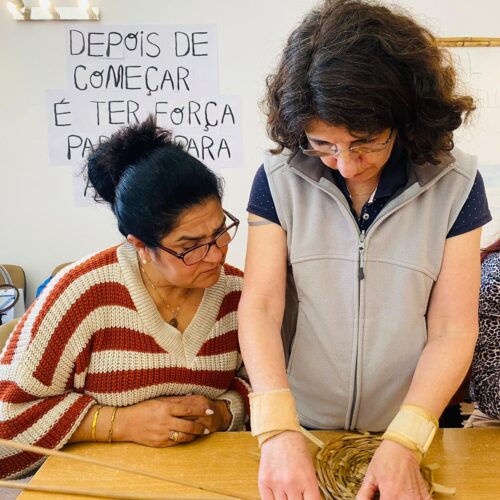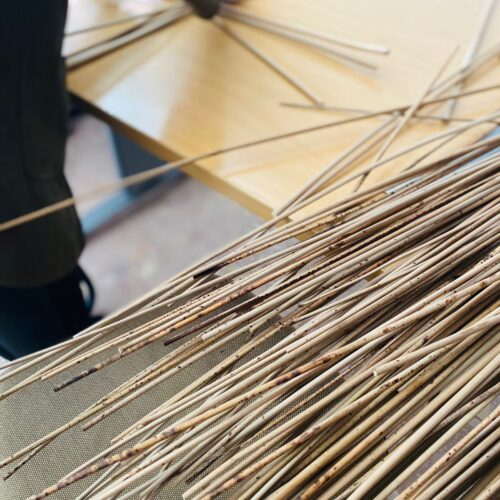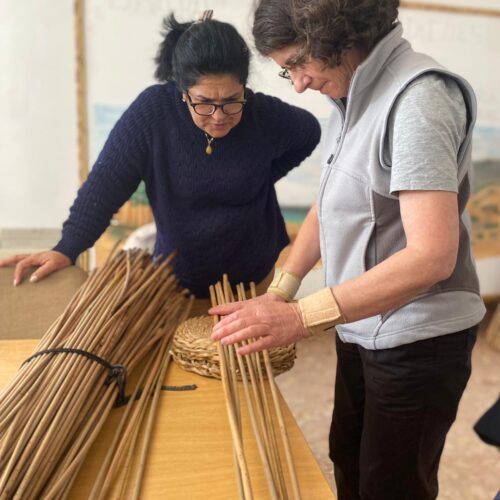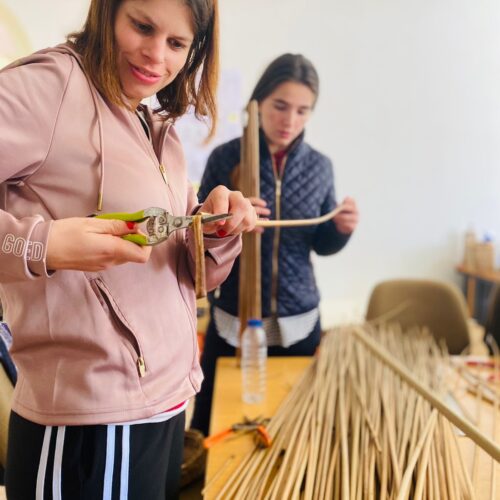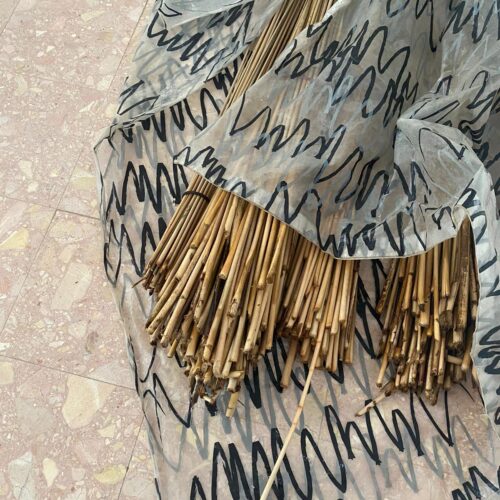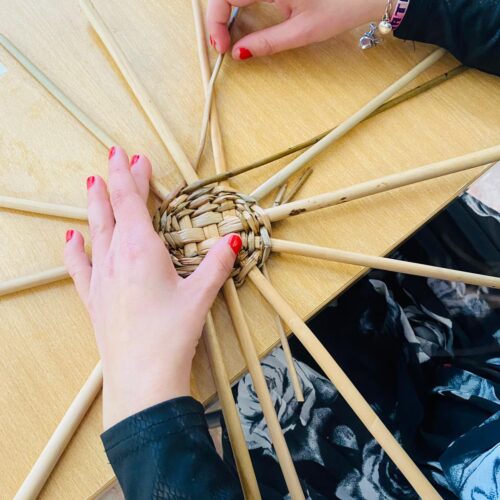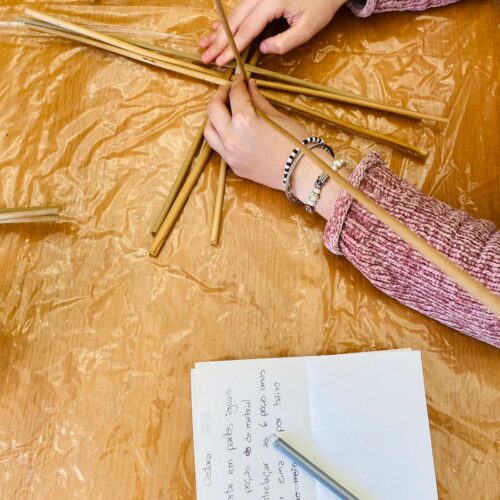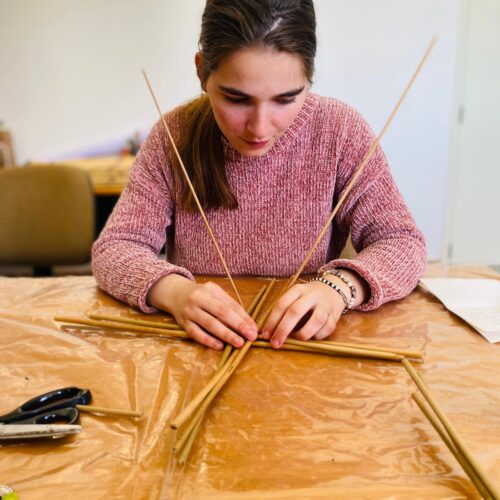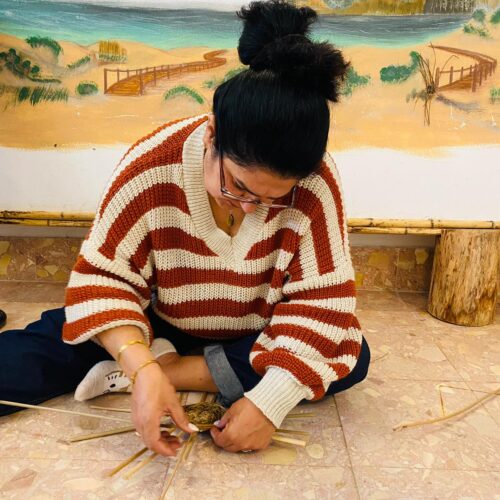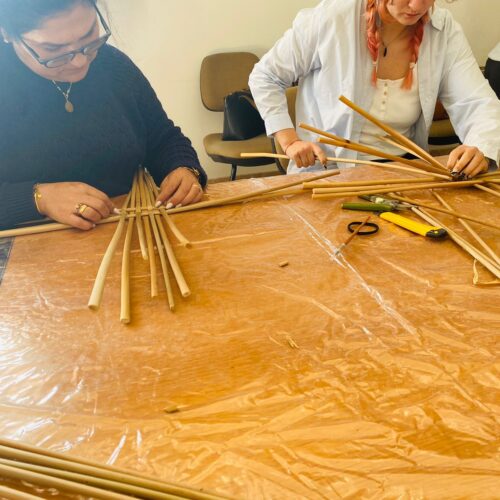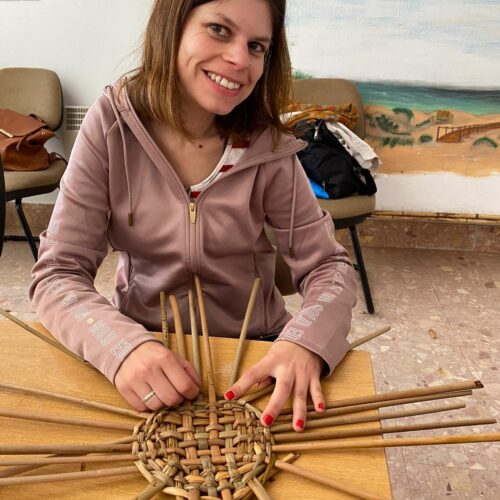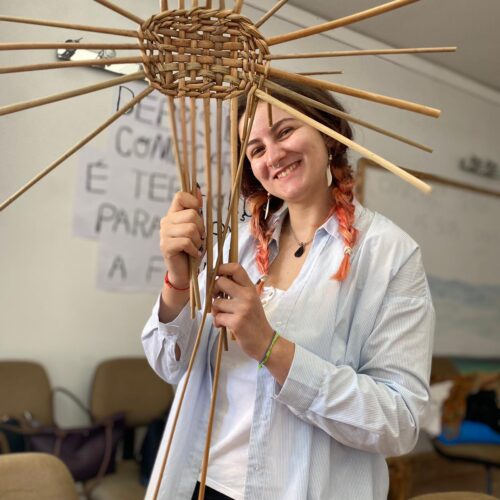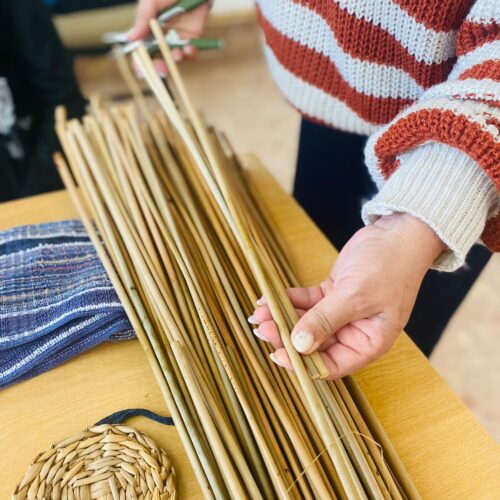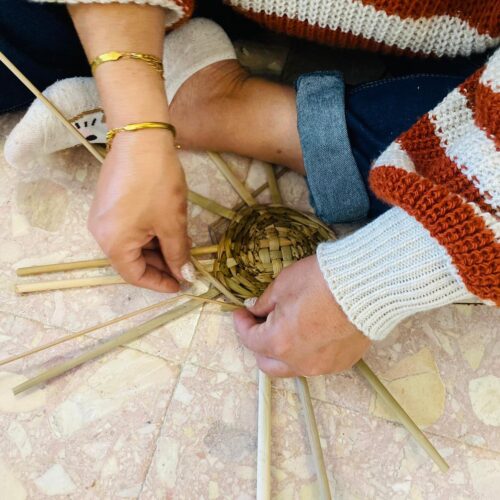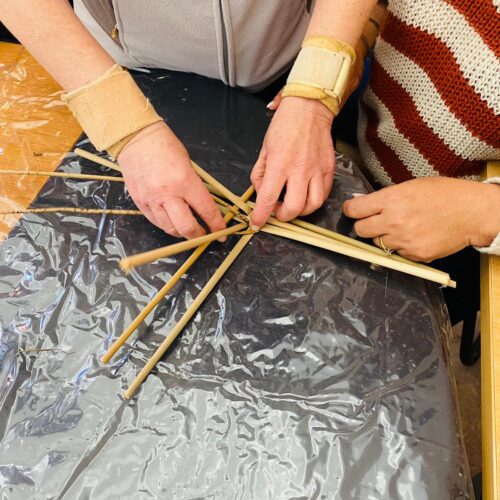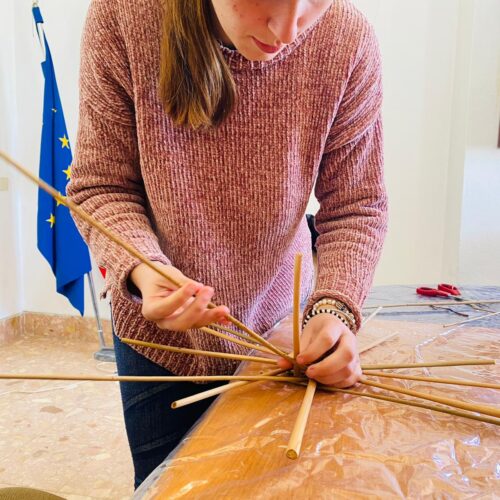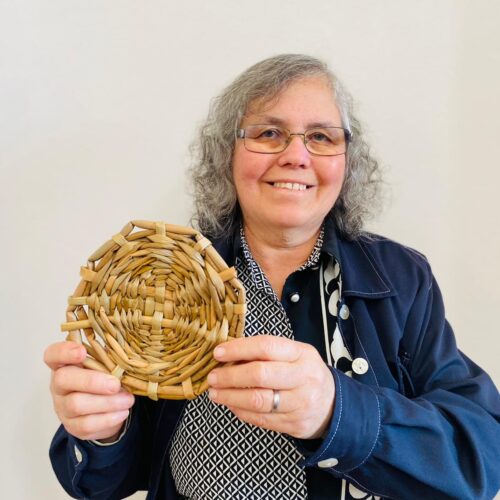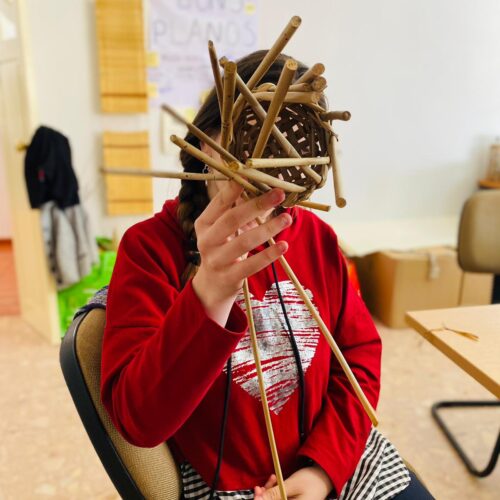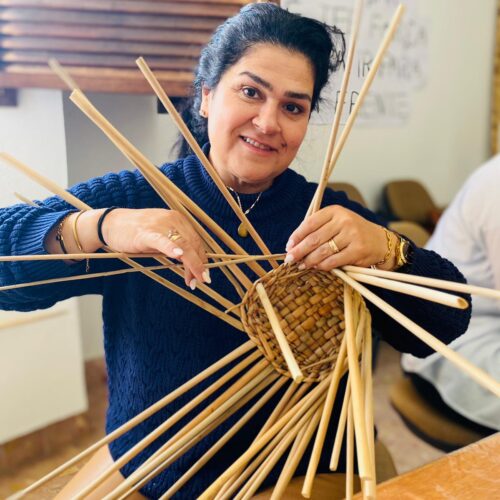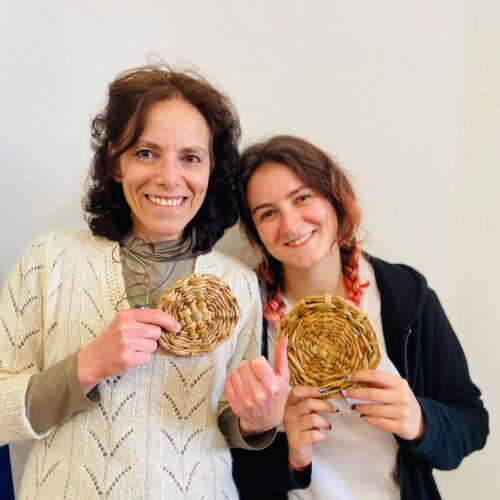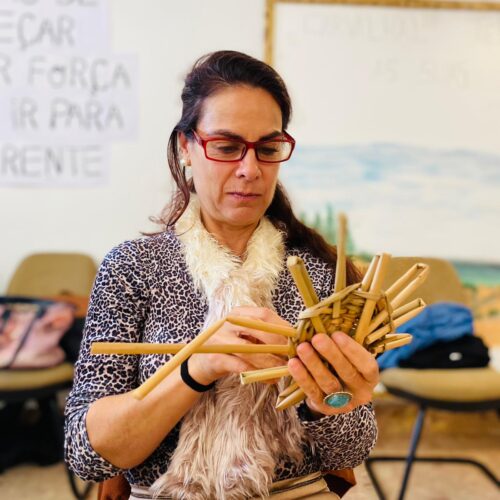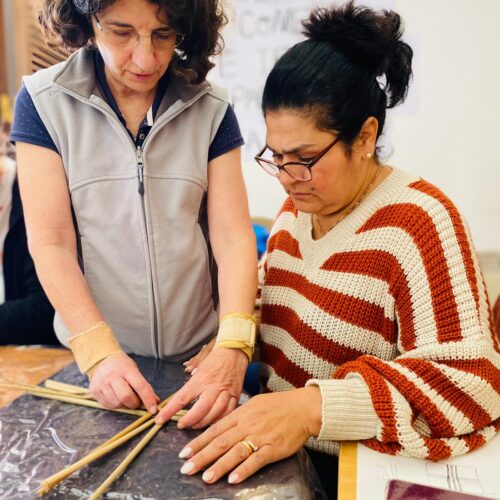Location
Having started in March 2023, the training action FAZER BEM took place in the village of Carvalhal in the Municipality of Grândola (Alentejo Region) in order to intervene directly in the place where the group of women live. The course provided not only tools from the aforementioned disciplinary areas, but also, in partnership with local entities, aimed to create long-term strategies, such as access to the labour market and economic independence.
This is a predominantly rural area that has been recently subjected to international interest and investment in tourism, which can also be an advantage in relation to the situation of these site-specific craft practices.
Description & Timeline
Focused on the dissemination of knowledge and information, FAZER BEM consisted of a collaborative residency between the participating women, designers and artisans, divided into three types of training actions:
- Experiences and knowledge sharing sessions between participants and trainers;
- The creation of new products;
- A learning workshop focused on the transmission of techniques and tools and on innovation and creativity;
- A laboratory of collaborative production between women, designers and artisans;
- Notions of strategic design, communication and business models.
The selection process of the workgroup started in December 2022 and ended in February 2023, and was done in collaboration with Grândola’s local governmental entities.
The Training Course was preceded by a period of research on craft practices of the region of Alentejo, which was carried out in January 2023.
Meanwhile, D4C created a multidisciplinary team in the areas of product design, social design and craftsmanship. The two artisans, Dília Silva and Cristina Fonseca, came from different regions of Portugal, with recognised cultural heritage practices in the area of crafts. The course was then divided into three separate parts across 14 days – a total of 84 hours of training.
As an educational action with a vocational dimension, the group of women were first be introduced to activities that focus on capacitation and self-worth, self-motivation and development of confidence. Under the coordination of the Lisbon-based social designer Susana António, the group explored processes of individual and collective creativity, design and project development processes and approaches, with the aim of developing new perspectives on the development of personal or professional projects. The first week is focused on discovering new opportunities and creating strategies that foster collaboration, mobilisation, mutual aid and empowerment.
During the second and third weeks, the group were introduced to two different types of traditional handcraft practices. Firstly, in the second week of the course, Dília Silva taught the participants how to work with reed through handcrafted weaving techniques. Weaving is an ancient art with a lot of significance and history in traditional Portuguese culture, which involves the handling and interweaving of threads and fibres to create textiles. Traditionally associated with the production of baskets, mats, chairs and stools, reed weaving can have other types of applications. By the end of the week, it was expected that the participants knew the basics of reed waving techniques, having worked on several pieces, also learning the different stages for producing handbags and other objects.
In the last week of the training course, Cristina Fonseca taught the participants bulrush basketry techniques. This is a handcraft practice that originated in Santarém and is part of traditional Portuguese culture, although considered at risk of extinction by the people who work hard to keep it alive. Bulrush is a plant found in various regions of Portugal, especially in humid and/or swamp areas. This organic fibre is not only sustainable and accessible, but also resistant and long-lasting. The group learned introductory techniques on how to make baskets and other types of containers in this material, with the aim of creating at least one piece each by the end of the week.
Expected results and outcomes
The project leaves a legacy in the area of individual, but also collective training, marked by the exchange of methodologies, techniques, processes, knowledge and concepts operated between women in precarious situations, and artisan, designers and artists throughout the project, in which the benefits can extend for several years. Above all, the direct results of this training programme translates into the creation and production of several original handcrafted objects, developed in collaboration between the participating women and guided by the invited artisans and designer – results that reflect the learning acquired by the group in the fields of design, art and crafts during the programme and the dominance of the technical skills that are required for self-sufficiency.
Moreover, the stakeholders – the Municipality of Grândola and the Junta de Freguesia do Carvalhal, together with Terrafoundation, experimentadesign and D4C teams – are working together on the upcoming continuation of the training course, in order to provide a space in the nearby area where the participants can meet regularly, developing their own projects and working on the skills acquired during the course. These gatherings will be sporadically accompanied by the D4C team and stakeholders involved, in the hope of creating a multitude of new results and opportunities that may extend for a long period of time.
As a direct investment by two of the stakeholders of the programme, Terrafoundation and experimentadesign, a continuation of the FAZER BEM project is planned, with the goal of sharing the results to the local community and incentivising the continuation of the work developed during the workshop created for FORWARD. There will be a presentation of the pieces in an itinerant exhibition, as well as a book about the project, which will be launched in November 2023. The exhibition will have two presentations, first in August, in Carvalhal, in an outdoor space in front of the extensive area of rice fields characteristic of this region, and then in Grândola, in one of the exhibition spaces belonging to the Municipality, ending on November 30th.
